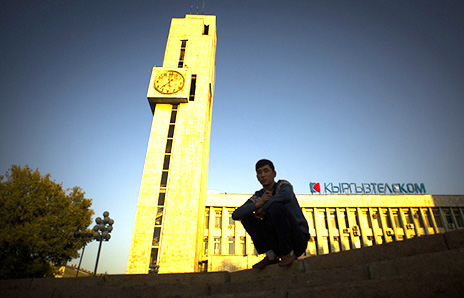Kyrgyzstan wants to join Eurasian Economic Union

“Kyrgyzstan states that they want to join the Customs Union and the Eurasian Economic Union from January 1, 2015,” she said.
Kyrgyz Prime Minister Dzhoomart Otorbayev said Kyrgyzstan is doing everything to become a member of the Eurasian Economic Union this year.
“Russia remains the main economic partner for us in Eurasian integration processes,” Otorbayev said, adding that one of important areas of cooperation with Russia was energy.
Kyrgyzstan also plans to supply more agricultural products to Russia. “Our producers would like to supply their products to the Russian market,” the premier said.
Eurasian Economic Union Treaty
The Treaty on the establishment of the Eurasian Economic Union was signed by the presidents of Russia, Belarus and Kazakhstan on May 29, 2014 in Astana.
The agreement is the basic document defining the accords between Russia, Belarus and Kazakhstan for creating the Eurasian Economic Union for the free movement of goods, services, capital and workforce and conducting coordinated policies in key sectors of the economy, such as energy, industry, agriculture and transport.
The agreement stipulates the transition of Russia, Belarus and Kazakhstan to the next stage of integration after the Customs Union and the common economic space.
The Treaty on the Eurasian Economic Union stipulates customs and technical regulation, foreign trade policies and measures to protect the internal market. The agreement envisages the transition to common customs tariffs.
The agreement also stipulates the principles of coordinated macro-economic and foreign exchange policies, financial market regulation, interaction in the energy and transport sectors, the development of a common gas, oil, petroleum product, medicines and medical equipment market.
The Treaty’s provisions cover such areas as intellectual property and state purchases, industry, agriculture and labor migration. The document also regulates information interaction within the union.
The document says that the union is open for accession by any state sharing the union’s goals and principles on the terms agreed by the member countries.














































